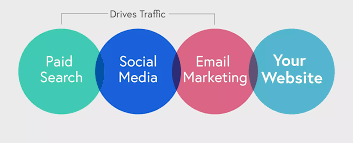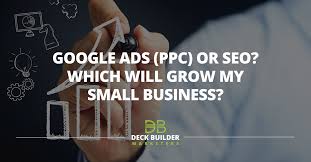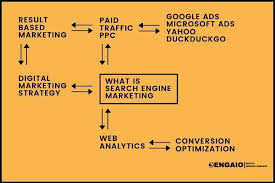Unlocking the Power of SEO and SEA: Maximising Your Digital Marketing Strategy
Understanding the Difference Between SEO and SEA
Search Engine Optimization (SEO) and Search Engine Advertising (SEA) are two crucial components of any successful digital marketing strategy. While both aim to increase a website’s visibility on search engine results pages, they differ in their approaches and outcomes.
SEO: Enhancing Organic Visibility
SEO focuses on improving a website’s organic visibility by optimizing its content, structure, and backlink profile. By targeting relevant keywords, creating high-quality content, and adhering to search engine guidelines, SEO aims to rank a website higher in organic search results. The benefits of SEO include long-term sustainability, credibility, and cost-effectiveness.
SEA: Paid Advertising for Instant Results
In contrast, SEA involves paid advertising to appear at the top of search engine results pages. Advertisers bid on keywords relevant to their target audience and pay each time a user clicks on their ad (pay-per-click). SEA offers immediate visibility and control over ad placements, making it ideal for short-term campaigns or promoting specific products or services.
The Synergy Between SEO and SEA
While SEO and SEA have distinct purposes, they can complement each other effectively in a comprehensive digital marketing strategy. By combining organic growth with paid advertising, businesses can maximise their online presence and reach a wider audience. For example, using SEA to promote new products can drive immediate traffic while SEO efforts work towards sustainable long-term visibility.
Conclusion
Both SEO and SEA play vital roles in enhancing a website’s visibility and driving traffic. Understanding the differences between these two strategies is essential for businesses looking to establish a strong online presence. By leveraging the strengths of both SEO and SEA in harmony, businesses can achieve optimal results in the competitive digital landscape.
Maximising Online Success: The Benefits of Integrating SEO and SEA Strategies
- SEO focuses on organic visibility, enhancing long-term sustainability and credibility.
- SEA offers immediate visibility through paid advertising, ideal for short-term campaigns or promotions.
- Combining SEO and SEA in a digital marketing strategy can maximise online presence and reach.
- SEO targets relevant keywords and high-quality content to improve website ranking in organic search results.
- SEA provides control over ad placements and allows businesses to target specific audiences effectively.
Exploring the Drawbacks of SEO and SEA: Cost, Budget Dependence, and More
- 1. Costly
- 2. Dependency on Budget
- 3. Temporary Results
- 4. Ad Blindness
- 5. Limited Organic Growth
- 6. Click Fraud
SEO focuses on organic visibility, enhancing long-term sustainability and credibility.
Search Engine Optimization (SEO) is a powerful digital marketing strategy that prioritises organic visibility, contributing to long-term sustainability and credibility for businesses online. By meticulously optimising website content, structure, and backlink profiles, SEO aims to secure higher rankings in organic search results. This sustainable approach not only boosts visibility over time but also establishes trust and authority with users and search engines alike. As a result, businesses investing in SEO can enjoy lasting benefits that strengthen their online presence and reputation in the competitive digital landscape.
SEA offers immediate visibility through paid advertising, ideal for short-term campaigns or promotions.
Search Engine Advertising (SEA) provides businesses with immediate visibility through paid advertising, making it an ideal choice for short-term campaigns or promotions. By bidding on relevant keywords and paying for clicks, companies can quickly reach their target audience and generate instant traffic to their website. This rapid exposure allows businesses to promote new products, limited-time offers, or time-sensitive events effectively, maximising their marketing impact in a short period of time.
Combining SEO and SEA in a digital marketing strategy can maximise online presence and reach.
Integrating both SEO and SEA into a digital marketing strategy offers a powerful advantage by broadening online visibility and expanding reach. By leveraging the strengths of SEO to enhance organic search results and SEA to drive immediate paid traffic, businesses can create a comprehensive approach that maximises their online presence. This synergy between SEO and SEA not only increases brand exposure but also ensures that businesses can effectively target a wider audience, ultimately leading to improved engagement and conversions in the competitive digital landscape.
SEO targets relevant keywords and high-quality content to improve website ranking in organic search results.
Search Engine Optimization (SEO) focuses on targeting relevant keywords and creating high-quality content to enhance a website’s ranking in organic search results. By strategically incorporating keywords that align with users’ search queries and producing valuable content that meets their needs, SEO not only boosts a website’s visibility but also establishes credibility and trust with both search engines and users. This approach ensures that the website appears prominently in organic search results, driving targeted traffic and increasing the likelihood of conversions.
SEA provides control over ad placements and allows businesses to target specific audiences effectively.
Search Engine Advertising (SEA) offers businesses a valuable advantage by providing precise control over ad placements and enabling targeted audience reach. Through SEA, businesses can strategically select keywords and demographics to ensure their ads are displayed to the most relevant audience. This level of control not only enhances the effectiveness of advertising campaigns but also maximises return on investment by reaching potential customers who are more likely to convert.
1. Costly
One significant drawback of Search Engine Advertising (SEA) is its costliness, particularly when targeting competitive keywords. Running SEA campaigns can quickly become expensive, as advertisers often need to bid higher to secure top ad placements for popular search terms. This increased competition drives up the cost-per-click, making it challenging for businesses with limited budgets to sustain long-term SEA campaigns effectively. As a result, the high costs associated with SEA can deter some businesses from fully leveraging this advertising method to maximise their online visibility and reach.
2. Dependency on Budget
One notable drawback of Search Engine Advertising (SEA) is its dependency on budget. Success in SEA typically demands a substantial advertising budget to outbid competitors, secure top ad placements, and drive significant traffic to a website. This financial requirement can be a barrier for smaller businesses or those with limited marketing resources, limiting their ability to fully leverage the benefits of paid advertising for immediate visibility on search engine results pages.
3. Temporary Results
One significant drawback of Search Engine Advertising (SEA) is the temporary nature of its benefits. Unlike Search Engine Optimization (SEO), which can yield long-term organic visibility, SEA’s advantages are short-lived and reliant on the advertising budget. Once the allocated budget for SEA campaigns runs out, the visibility and traffic generated through paid ads diminish rapidly. This limitation underscores the need for businesses to carefully balance their digital marketing strategies to ensure sustained online presence and effectiveness beyond the immediate impact of SEA campaigns.
4. Ad Blindness
One significant drawback of SEO SEA strategies is the phenomenon of ad blindness, whereby users become accustomed to ignoring paid search results as they browse the web. With the proliferation of online ads, users may develop a tendency to overlook these paid placements, focusing instead on organic search results or other content. This can diminish the effectiveness of SEA campaigns over time, as users’ attention shifts away from paid advertisements towards more organic and authentic sources of information. Marketers need to be mindful of ad blindness and find ways to engage users effectively amidst the digital noise to ensure their SEA efforts remain impactful and relevant.
5. Limited Organic Growth
Focusing solely on Search Engine Advertising (SEA) can pose a significant drawback in terms of limited organic growth potential through Search Engine Optimization (SEO). By prioritising paid advertising over organic strategies, businesses may miss out on the long-term benefits of building a strong organic presence. SEO is essential for sustainable visibility and credibility in search engine results, and neglecting it in favour of SEA alone could restrict the overall growth trajectory of a website. Striking a balance between SEO and SEA is crucial to maximise both short-term visibility and long-term organic growth opportunities.
6. Click Fraud
One significant drawback of Search Engine Advertising (SEA) is the potential for click fraud. Click fraud poses a serious risk in SEA campaigns, as competitors or malicious entities may engage in fraudulent activities by repeatedly clicking on ads to exhaust advertising budgets without any genuine interest or intention to convert. This unethical practice not only wastes resources but also distorts campaign performance metrics, making it challenging for businesses to accurately assess the effectiveness of their paid advertising efforts. Vigilance and monitoring are essential to mitigate the impact of click fraud and ensure the integrity of SEA campaigns.









